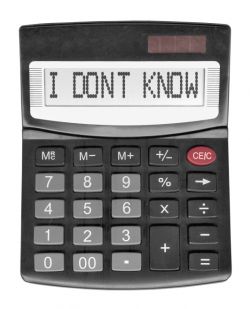|
|

Are you measuring your marketing?
I don’t like math. It’s not that I can’t do it – I took advanced math all through high school. I just really don’t enjoy it.
But math matters.
If math = measurement. How can you justify your marketing budget/spend if you can’t point to how the dollars are moving some needle.
You see — there isn’t just one needle. No one indicator or sign of success. It all depends on what you are trying to accomplish. Depending on the size of your organization, measurement does not have to be complicated. For most businesses — it’s more a matter of discipline than it is sophistication.
Let’s look at some common indicators and how you might measure for them.
Are you trying to measure perceptions/opinions?
A good way to measure mind shifts is to do some benchmark research and then repeat that exact same research after a given period of time. Compare the results for your measurement – does the marketplace see you differently than they did when you did the benchmark. (Depending on your size, budget etc. you should probably repeat the research every 2-3 years to get accurate results.)
Are you trying to measure a change in traffic (initial interest) either in your location or online?
Online is easy — track hits and unique visits with a tool like Google Analytics. Drive them to a specific landing page and simply monitor change/activity.
Offline is a little less scientific. You can guestimate foot traffic. Or you can ask people (as they check out or you engage with them) how they heard of your business.
You can also use a unique phone number or e-mail address in your marketing and track the number of inquiries that way as well.
Are you trying to measure inquiries or trials?
Again, this will differ on and offline. Online, you can track things like e-newsletter sign ups, downloads of coupons or e-books and requests for more information.
Offline, you might monitor phone calls and requests for proposals, bids or initial meetings. If you’re a retailer, you could also count redeemed coupons or how many samples you give out.
Are you trying to measure sales (new or residual)?
This should be pretty easy — just track sales. You’ll need some historical data so you have something to measure against. Be sure you divide up the data so you can track new versus repeat customers. For our purposes — you don’t need to boil down to the nitty gritty. That someone came in and spend $42.37 is enough. You don’t need to record that they bought a hammer, a box of nails and a garden hose.
Of course… the key to effective measurement in marketing is understanding why you’re doing it in the first place. Measurement isn’t an afterthought. It should be built into your marketing plan’s strategy.
Knowing what you are trying to accomplish will tell you what you should measure. But…it’s a what, not an if.
